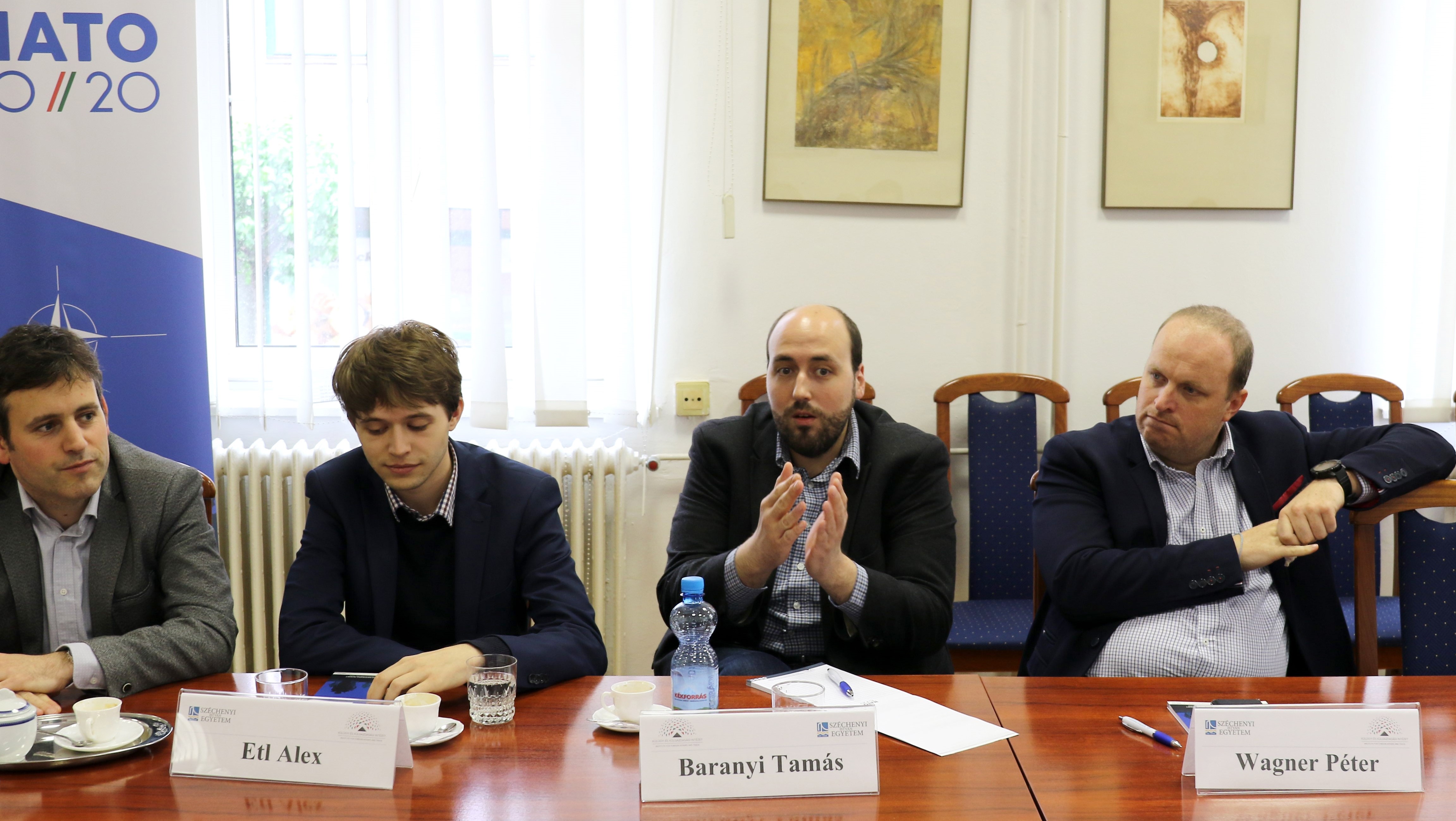This season opening event of the Institute for Foreign Affairs and Trade’s “Ask the Expert!” foreign policy-themed roundtable discussion series was hosted by the Széchenyi István University in Győr on the 6th of May, 2019. The invited panelists included Tamás Péter Baranyi,PhD, chief research officer of the Antall József Knowledge Centre, Alex Etl, assistant research fellow of the National University of Public Service ’s Center for Strategic and Defense Studies, as well as senior research fellows of IFAT Gergely Varga, PhD, and Péter Wagner, PhD. The guests were introduced by Júlia Szőke,PhD, associate professor of the Department of International Studies and Communication of the Széchecnyi István University.
During the panel discussion, the invited experts analyzed the history of the Alliance, its past and recent challenges regarding the 70th anniversary of NATO’s establishment and Hungary’s 20 year-old membership, while examining the North Atlantic Treaty Organization from a regional and global perspective.
Prior to the panel discussion, questions had been collected from the students, which were answered at the beginning of the event. The majority of them concerned the possibility of the establishment of a common EU army and the diverging views of member states on the idea. The experts agreed that a common EU army would fundamentally change the American-European relations, while its establishment and operation would imply the partial loss of national sovereignty.
Following the above, the questions of the audience turned towards the Hungarian NATO membership. Among others, the discussion touched upon the issue of the acceptance of Hungary in the Alliance, as well as the assessment and appreciation of the Hungarian soldiers in the international community.
IFAT’s senior research fellow Péter Wagner regularly visits NATO’s crisis management operations and missions where Hungary is involved, thus he answered these questions based on his experience and impressions. He emphasized the outstanding performance of Hungarian soldiers who are usually deployed in foreign territories that have historical ties to Hungary or are crucial due their geographical proximity, such as Kosovo.
According to Gergely Varga, the recently started modernization programs of the Hungarian army could have a positive impact on the performance and efficiency of Hungarian soldiers, as well as the overall assessment of the Hungarian Defense Forces.
This roundtable was part of IFAT’s NATO 70/20 event series, which commemorates the founding of NATO in 1949 and Hungary’s accession to the alliance in 1999.

